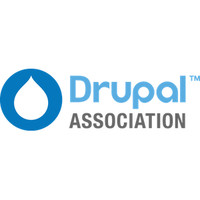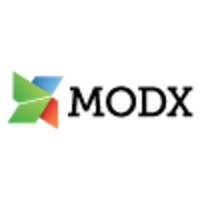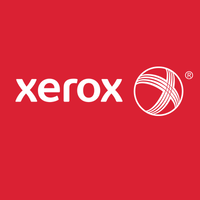TOP CONTENT MANAGEMENT SYSTEM(CMS) SOFTWARES AND TOOLS










Choose Other Top Software Providers
TOP CONTENT MANAGEMENT SYSTEM(CMS) SOFTWARES AND TOOLS resources
Latest Posts
Why You Need a Content Management System
We’ve written extensively about content. Content is KING! Yes, you’ve heard this all before. Because it’s true. Content is very important. Great.
But, what about managing all of this content? Sure, you need to write it. See our post on content marketing for some tips on that. But, once you have the content marketing machine in place, how do you place this content where it needs to be?
5 Reasons You Should Be Using A Content Management System
Today, I'm beginning a new blog series on Content Management Systems (CMS). I realize that many of you already understand the purpose of CMS. And that, at first glance, this series may not jump out at you as a must-read.
But remember that your website is the centerpiece of your entire internet marketing strategy—and your CMS is the heart of your website. So doesn’t it make sense to spend some time to really understand the software that’s ultimately driving your entire internet marketing strategy?
Top 5 Reasons why CMS is Important to manage your Website
A business today runs a parallel life in the digital world as much in real life. The fact that businesses are spending a lot of money in managing websites and connecting with customers online speak a lot about the value of websites. However, it is necessary that one also note a few points before going for investing in a Content Management System (CMS) for their business sites. CMS help the admin of the websites to handle content.
Why A Content Management System Is Important
A content management system (CMS) allows you to create, edit, manage and maintain website pages on a single interface. Using a CMS, companies can easily build sites for themselves and their clients. These systems streamline web design and content publishing, ensuring that both your site and workflow are streamlined.
Understanding Headless CMS Tools for ECommerce Businesses
It goes without saying that content plays a critical role in the success of every e-commerce brand. You can have the best product in your industry but still get lost in the crowd. Content differentiates.
Modern e-commerce platforms like Shopify, BigCommerce, and Magento provide solid tools for creating and maintaining product description landing pages that include rich media. They provide easy-to-use, but admittedly basic functionality for creating blog and other page content.
But sometimes, that's not enough.
Some stories need to be told through deeper, richer content. Some brands have a significant catalog of content and rich media, and therefore require more robust tools for managing these digital assets.
5 Types of Content Management Systems
A content management system is a software that helps create, organize, and maintain digital content. Generally, CMSs support multiple users. They provide ample benefits for large businesses, including significant cost savings, increased collaboration among team technical documentation team members (even the non-technically minded), and total control of content.
Understanding the different types of content management systems is a key step in choosing the best option for your business. Here are five popular content management solutions to help you organize digital content:
5 Reasons to Use a Content Management System
Content management systems (CMS) take the stress out of managing your website. If you have a website, you more than likely fit into one of two categories – you either have a static website, which means all of your site updates have to be hard coded using standard web programming techniques or you already have a content management system in place and you can make dynamic page updates on your own.
Aside from saving you both time and money, investing in a CMS offers countless benefits. In fact, it can be one of the most beneficial investment in your business’ online presence. Here are some of those benefits, as well as why you should invest in a CMS.
8 Best CMS Platforms to Start a Website in 2019
Starting a website is easier than ever in 2019. You have a lot of platforms to choose from, and many enable you to create almost any type of site you want. However, choosing which Content Management System (CMS) to use has never been more challenging, due to the sheer number of options available.
In this article, we’ll help you make that choice. We’ll provide a breakdown of everything you need from the best CMS, and introduce you to eight of the top options, including:
5 Top CMS Platforms For Web Development
Nowadays to get a competitive edge, building a business website is mandatory and to do that, one of the things you’d need is suitable CMS platforms. The term CMS is nothing new to you, however, with a number of new platforms emerging every year, sometimes it becomes hard to find out the top CMS platforms to choose from.
Whether you need to set up a blog, a portal for maintaining a web presence, an attractive eCommerce website or anything else to enhance your online presence, there are CMS tools for your specific needs. The decision to choose the perfect CMS tools for a website depends on your requirement. Therefore, you have to decide the purpose of your website in the first place (I hope you have already done that).
The 9 Most Popular Free Content Management Systems (CMS) 2018
When it comes to building websites that are focused on content, the best option is usually to opt for a content management system. Having a custom website developed without a solid maintenance budget for the future can have a huge effect on your business operations in the long run, whereas most of the current content management systems today are open-source and easily maintainable, not to mention free.
W3Techs content system management report suggests that the leading top three CMS’s are accountable for more than 70% of total CMS usage across all websites on the web. You can learn more about the other types of content management systems out there using this site. This roundup of the leading content management systems focuses on both the leading platforms, but also specific niche ones in markets such as eCommerce.
10 Outstanding Marketing CMS Platforms You Need to Know in 2019
If you want a consistent and successful content marketing operation, you need a CMS everyone can use. Long gone are the days of writing out HTML by hand – now, with dynamic sites that can reach into the thousands of pages, a marketing CMS streamlines the work involved in creating new content in unprecedented ways.
With the right marketing CMS, it only takes seconds to bring your ideas to life.
15 Best Content Management Software Systems For Your Business
Web content management software is also called CMS. The system is used to create and manage digital web content. Most CMS vendors offer bundled solutions that allow programmers to design and customize web templates and set up a publishing workflow.
You can use the software to create webpages, create and distribute copy and media, and manage websites. There are both open source and paid apps available in the market. Both types of software offer extensions and themes that add different elements like modules, plugins, widgets, etc. In this article, we list the best content management software systems selected by our SaaS experts.
10 Most Popular Content Management Systems Online
Perhaps you’re planning to set up a blog. You might have been asked to launch (or revive) your employer’s corporate website. Or, you might just want to announce your presence online.
Heave a sigh of relief as the days of hand-coded HTML pages, and mastering CSS, are long gone. All it takes today is to purchase some hosting and install a content management system (CMS). Within minutes, your new website will be polished, a pleasing theme chosen, and your content on show for the world to see.
Top 10 Most Usable Content Management Systems
There are plenty of options when it comes to picking a content management system for a development project. Depending on how advanced you need the CMS to be, what language it's built in, and who is going to be using it, it can be a nightmare trying to find the "perfect" CMS for a project.
However, some CMSs have a slight edge over the rest of the competition because of the usability of the software. Some are just easier to install, use and extend, thanks to some thoughtful planning by the lead developers.














